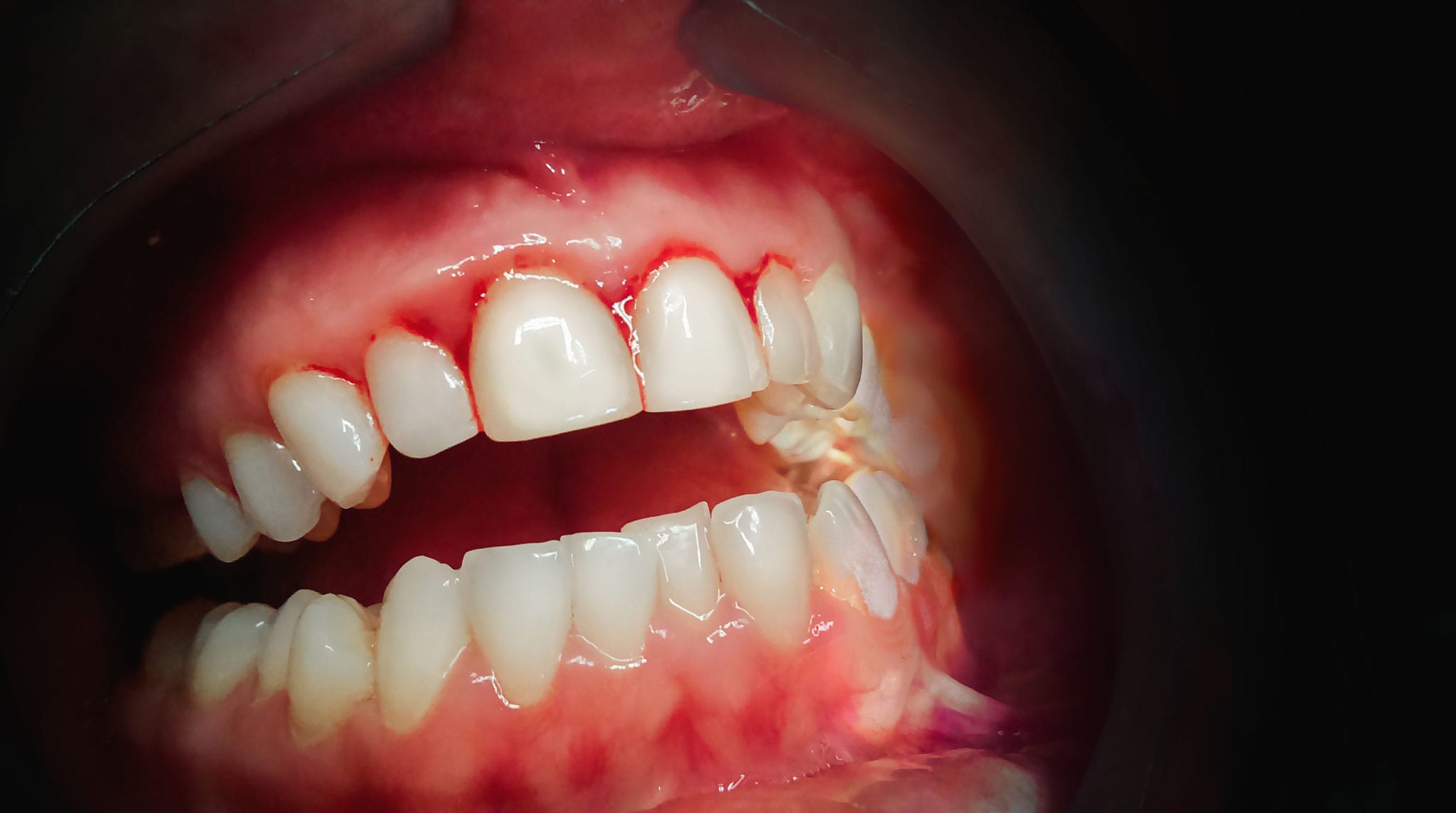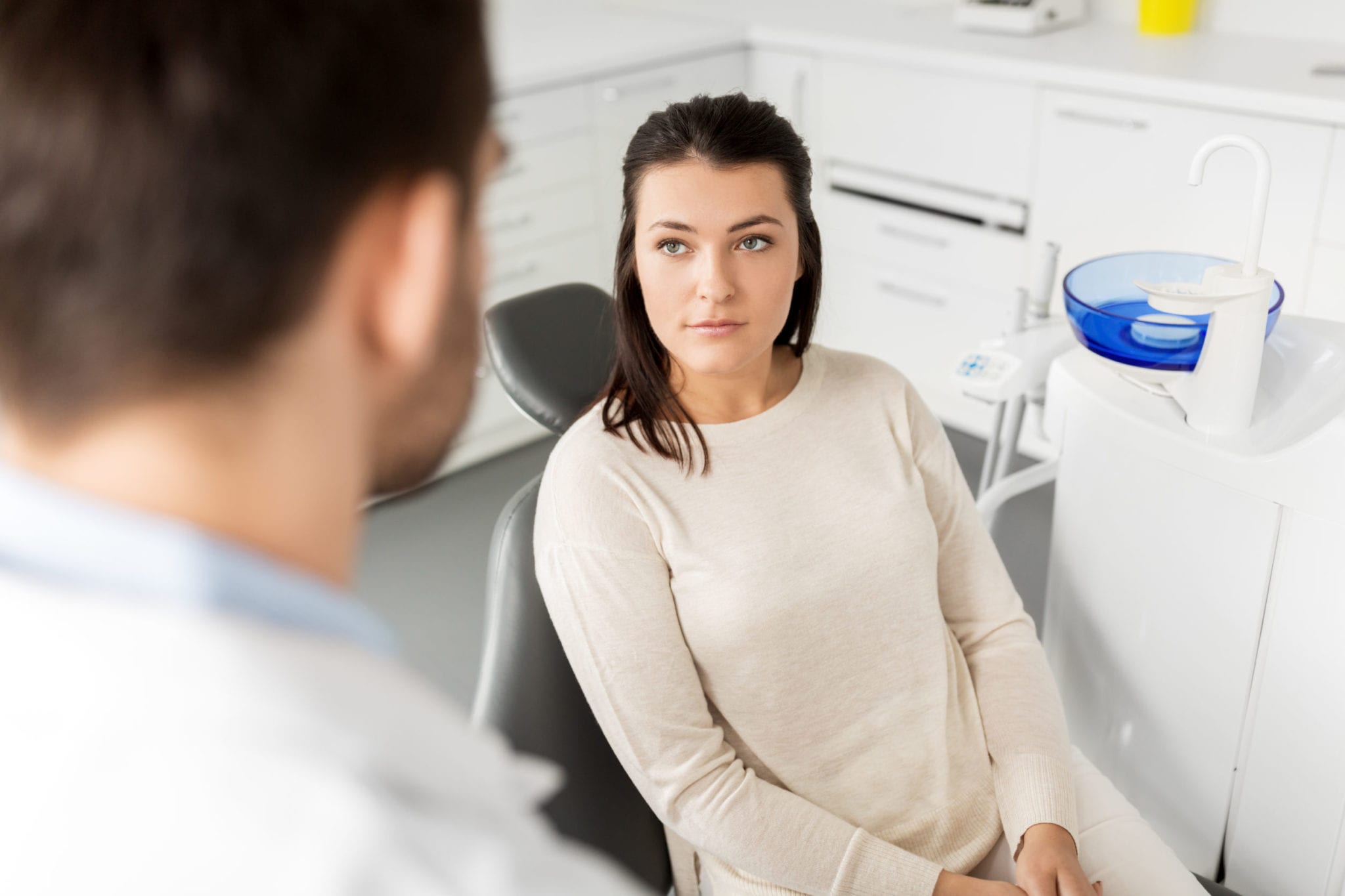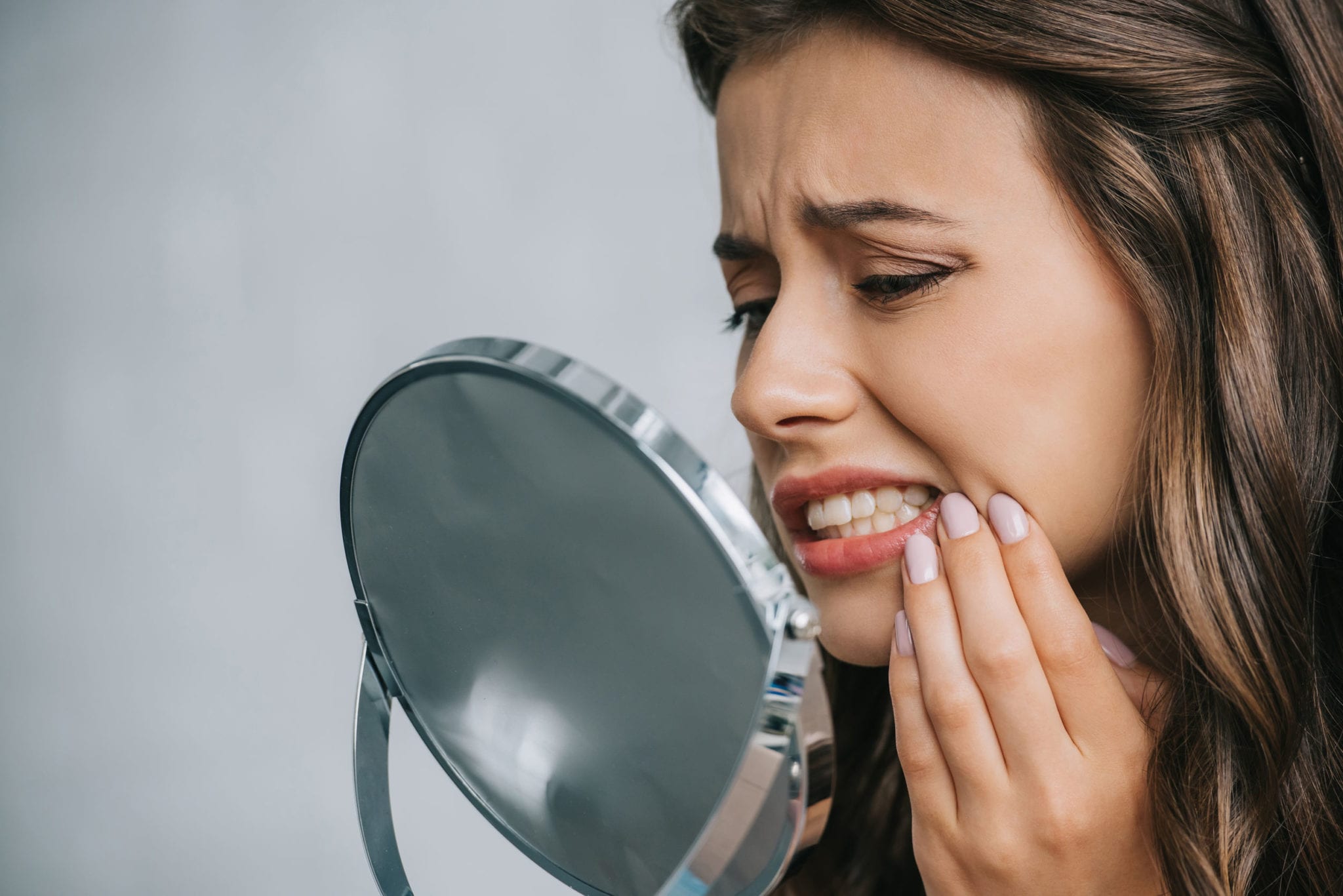
When you brush or floss, you may notice a little bit of blood coming from your gums. While many people brush this off as normal, gum bleeding and sensitivity are signs of inflammation, and potentially underlying disease.
If you notice that your gums are bleeding, you should always check in with your dentist to rule out something serious.
That said, there are some home remedies that can help prevent and relieve the symptoms of sensitive or bleeding gums.
Common Causes of Sensitive or Bleeding Gums
Bleeding or sensitive gums are a sign of inflammation or irritation of the gum tissue. This can be due to a number of underlying causes, ranging from improper oral hygiene practices to gum disease.
Common causes of sensitive or bleeding gums include:
- Poor oral hygiene, including not brushing at least twice and flossing at least once per day
- Using a toothbrush with stiff bristles, or brushing too vigorously
- Using a frayed, worn toothbrush that does not clean effectively
- Improper use of dental floss that irritates the gums
- Early-stage gum disease, which may be more common in older adults
- Systemic health problems or a weakened immune system
- Taking certain medications such as blood thinners, aspirin or ibuprofen
Relieving Gum Bleeding and Sensitivity
Gum bleeding and sensitivity can be both uncomfortable and upsetting. Fortunately, simple at-home first aid can go a long way in helping to relieve some of the symptoms.
Applying Pressure with Gauze
You can stop gum bleeding by holding a clean, dampened piece of gauze against the affected area. Gently press the gauze in place until the blood stops flowing.
Using Cold Compresses in 10-minute Increments
To relieve gum sensitivity and discomfort, hold a small ice pack against the affected area. This will reduce pain and swelling. Only treat the area with ice for 10 minutes, and then take a 10-minute break before reapplying.
Rinsing with Warm Salt Water

Rinsing with warm salt water can help kill bacteria and soothe inflamed gums. Add a half teaspoon of salt to a glass of warm water and rinse your mouth for a few seconds. Repeat this several times daily.
There are also a number of actions you can take to help prevent getting to a point where you need these kinds of treatment.
Preventing Gum Bleeding
If you’ve recently noticed that your gums are beginning to bleed while brushing, you should always talk to your dentist and get checked out to rule out serious oral or systemic health problems.
Once you’ve ruled out those types of conditions, you can try some at-home remedies to help decrease gum bleeding.
Step Up Your Oral Hygiene
Gum bleeding is often a sign of poor oral hygiene, as gums become inflamed and bleed when plaque builds up along the gum line.
To maintain good dental hygiene, make sure to do the following:
- Brush your teeth using the proper technique at least twice per day — ideally after mealtimes or sugary snacks, too
- Consider using a toothpaste formulated specifically for gum health or sensitivity
- Floss at least once daily using proper floss and flossing technique
- Rinse with antibacterial mouthwash after brushing and flossing
Eat a Healthier Diet
Eating the right diet can help improve your oral health and stave off gum bleeding:
- Eat fewer carbs and sugars. They encourage bacterial growth and plaque buildup, which can contribute to bleeding gums. Cutting back prevents plaque.
- Increase your vitamin C intake. Vitamin C strengthens your immune system and helps you fight gum infections that can cause gum bleeding. Deficiencies can also worsen bleeding.
- Increase your potassium intake. This mineral is integral in staving off gum bleeding, as it helps your blood clot. Potassium deficiency may also contribute to gum bleeding.
- Drink green tea. Green tea contains natural antioxidants that can decrease gum inflammation and gum bleeding.
Do Your Best to De-Stress
Emotional stress has a negative impact on the immune system, which can impair your body’s defenses against gum infection and therefore increase gum bleeding.
Emotional stress may also cause you to neglect your oral hygiene.
Quit Smoking if You Haven’t Yet
Smoking is a major risk factor for gum disease. Residue from the smoke itself is harmful to gum tissue, and smoking also impairs the immune system’s ability to fight off gum infections. Quitting smoking can help your gums heal, and improve your overall physical health.
Stop Sharing Items Involving Oral Contact
The bacteria that cause gum disease and bleeding gums are contagious. If your partner has a high bacterial load in his or her mouth, your risk for gum problems increases.
Avoid sharing anything that comes into contact with other people’s mouths as well, such as water glasses.

While bleeding gums are extremely common, make no mistake – they are not normal. If you notice even the smallest amount of bleeding from your gums, head to your dentist for a full oral health checkup. In the meantime, incorporate these easy home-care practices to begin improving your gum health today.






